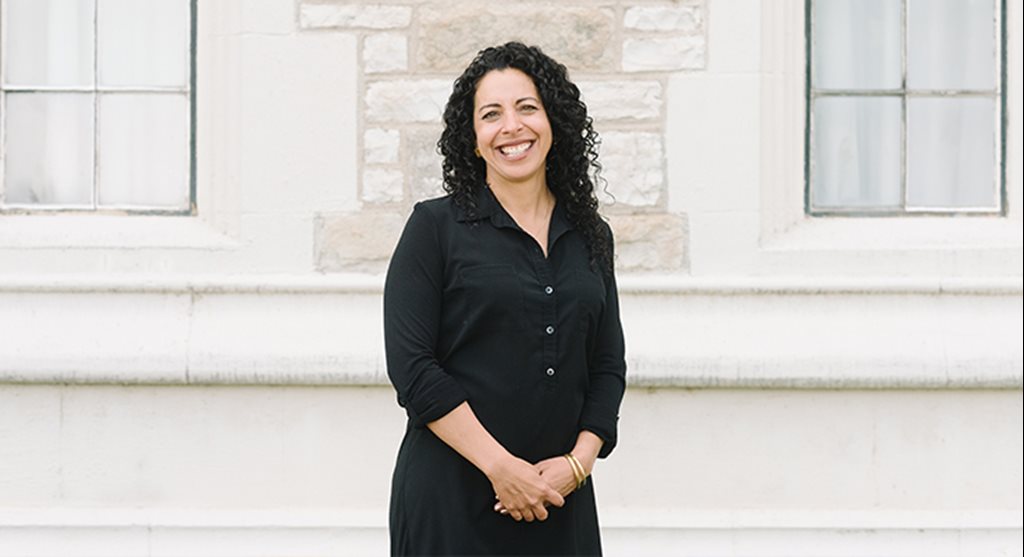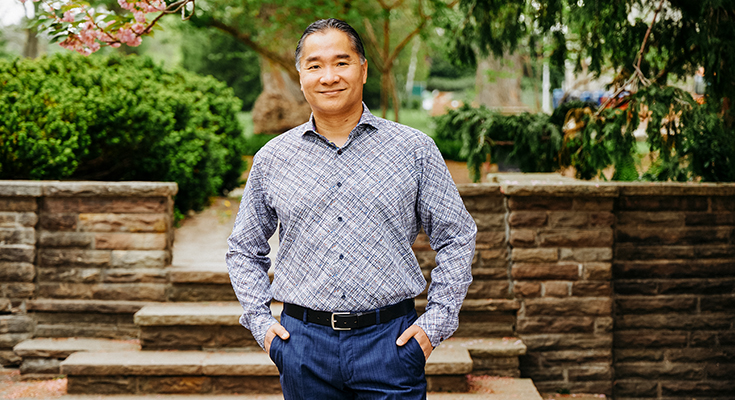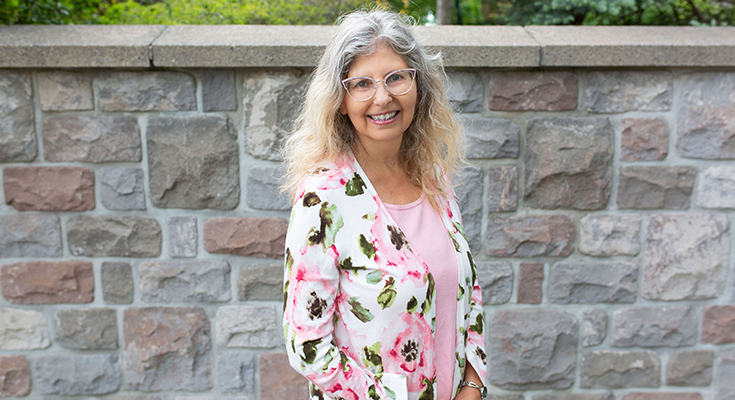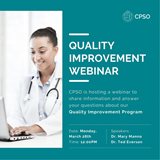
Three doctors explain how QI Program has reinvigorated their approach to practice
Dr. Claudia Musca’s participation in CPSO’s Quality Improvement Program has not only changed her approach to her medical practice, it has been instrumental in casting her regulator in a whole new light.
“Until very recently, I had been incredibly weary of the College,” says the Belleville family physician. “This QI Program has shifted my view of the College,” she said, explaining that she now sees CPSO as a partner in helping her provide better care to her patients.
During the Program, members are offered the opportunity to receive information and coaching from a College representative and peer. Dr. Musca said she chose to accept this offer and is very glad she did.
“What ensued was a wonderful opportunity for dialogue — a truly open and honest conversation with my College. It was not judgmental nor was it punitive. I understand the College's mandate is to protect the public but, for the first time ever, I feel the College has my back too and is rooting for me to succeed.”
That revelation alone, she said, would have made the Program worthwhile for her, but she also has very clearly seen the impact of the QI Program on her day-to-day practice.
“For the first time ever, I feel the College has my back too and is rooting for me to succeed.”
Dr. Claudia Musca
“The Program has left me being more curious about many aspects of my practice,” she said. “I have noticed myself thinking more about how I can improve office processes in simple ways, and I have implemented some of these already. For example, I have already updated many of my EMR charting templates to reflect best practices. With this, I have noticed increased confidence in what I am doing at work, specifically in my patient interactions.”
Dr. Musca's enthusiasm for this self-directed Program is shared by many of the physicians who have participated to date. Below, we speak to Dr. Musca and other recent participants of the program, Dr. Lawrence Chan, a Toronto family physician, and Dr. Lauren Donen, an Ottawa psychiatrist, about their experiences.
What did you like about the Quality Improvement Program?
LC: It was very flexible and was less stressful than I had anticipated. Instead of having a random assessor come to my office to review my charts, I appreciate having the option to examine my own work, finding my own strengths and weaknesses, and making my own plans to improve. This is definitely less intimidating and, in the long run, promotes better acceptance and adherence to the improvement plan.
LD: The QI Program challenged me to examine my practice in a new way. When I derived data from my own chart review, I was surprised to learn of several aspects that needed improvement.
CM: It invited me to reflect on my practice in a way that I would not have done had I not been asked to do so. We are so busy with our day-to-day work, proceeding with our practices often without putting much thought into many of our processes. The QI Program highlighted areas for improvement in a non-judgmental fashion by having me reflect on my practice. It encouraged me to identify areas for improvement and created a curiosity in me to find ways to address these. It also highlighted for me areas of strength, which I may not have recognized as strengths at all. It gave me more confidence to continue doing the things I was doing well, and the insight to recognize the areas which could be improved upon.

“I appreciate having the option to examine my own work, finding my own strengths and weaknesses, and making my own plans to improve.”
Have you ever had an opportunity to evaluate your practice in this way?
LD: Even though I had self-reflected on my practice before, it was often ad hoc, scattered or fleeting. The QI approach guided me to self-reflect in a more systematic way using actual data.
LC: No. This was the first time I was involved in a systematic way in evaluating my own practice, seeking improvement opportunities, and making SMART plans. I like using objective data to look at my practice and guide my improvement plan.
CM: I completed the CPSO Peer and Practice Assessment in 2018, which was a valuable experience,. It was, however, more of a passive process: providing charts for review, hoping what I was doing was adequate, and awaiting feedback for improvement. The QI program is member-driven, where we play a much more active role in our self-assessments. Whereas the Peer and Practice Assessment is more stress-provoking and felt more like an examination, the QI Program was more of a "project" and, though more time-consuming, it was a much more relaxed experience.
Was it difficult to use data to inform your goals?
LC: I chose to use the clinical data extracted from my own EMR. Our clinic had recently transitioned from an old EMR system to a new one, so there was a learning curve in using the new system to generate the data that I needed. Once I generated the data, it was not difficult to set goals. I can also generate different sets of data to set new goals in the future.
CM: When I embarked on the process, I admit I did think that using data to inform my goals would be onerous and challenging. However, as with anything, when you start delving into the nitty gritty of what is being asked, the process was much simpler than it appeared at first glance.
How did you find the use of the SMART (Specific, Measurable, Achievable, Realistic, and Timely) approach to goal setting?
LD: The SMART approach is really simple and user friendly, so my goals do not feel overwhelming or cumbersome to implement. It feels good to have goals. I actually feel reinvigorated, and more excited and enthusiastic about my practice, and that will help me provide better care to my patients and myself.
CM: The QI Program section on making SMART goals for myself has invited me to consider where I can apply this approach in so many different aspects of my practice, and it has shown me how simple it is to apply in order to continue honing my skills in the delivery of medicine.
LC: It was not just useful for the overall medical practice and patient care, but can be extended to all other goals. How many times have we failed our New Year’s resolutions? I found a new tool now for goal setting.

“I actually feel reinvigorated, and more excited and enthusiastic about my practice, and that will help me provide better care to my patients and myself.”
Were there specific tools or resources that you found helpful?
LC: I found the DDQI (Data-Driven Quality Improvement) tool most useful, opening up a new and objective way for me to analyze my practice and make improvements. The practice profile resources helped me understand the various risk factors associated with my practice.
CM: The tool/resource I found most useful was in my own backyard — my EMR! I am not tech savvy. Over my years in practice, I have fallen into old habits of getting too comfortable with using just the tip of the iceberg that my various EMRs have had to offer. The QI Program forced me to explore my own EMR more. I have been pleasantly surprised that what lies beneath the waterline is not only useful, but less complicated than I had thought it would be.
Were there any aspects of the QI Program that were particularly challenging?
LC: I found it particularly challenging to complete this during the COVID-19 pandemic, which I am sure brought significant changes to most physicians’ practices. I was revising my goals and expectations up until the last moment before submitting my PIP plan.
CM: The aspect of the QI Program which I found to be most challenging was choosing the right data tool for my practice type. I feel this is an area where the College might have helped to improve the user experience. Though it was helpful to have a listing of possible tools to choose from, I would have welcomed a short summary of what each listed tool could offer.
What tips do you have for your colleagues?
LD: I would just encourage everyone to engage in the QI Program.
















